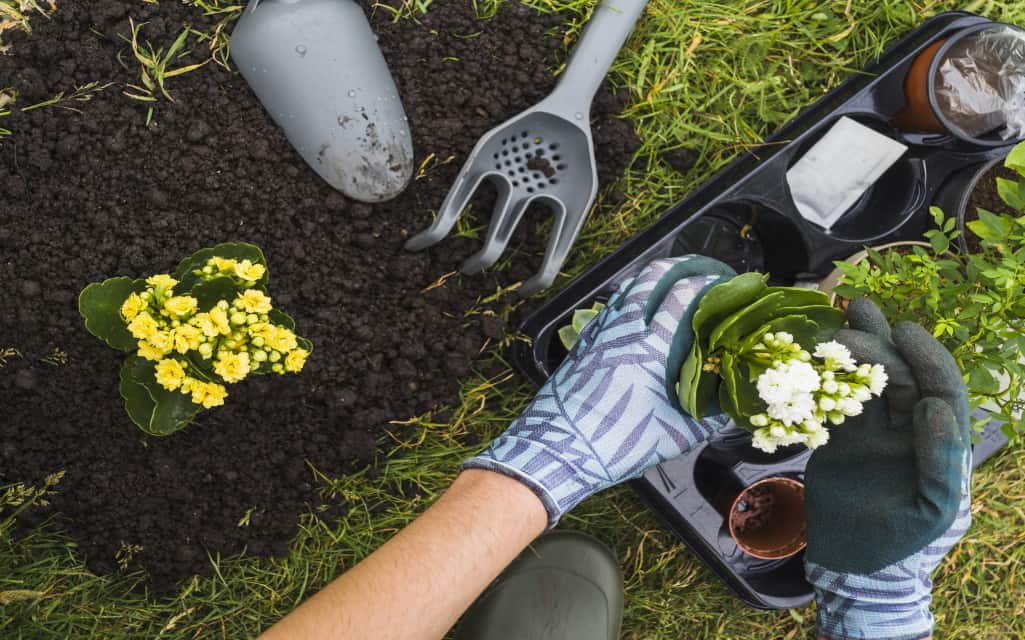Humate soil conditioner is better than chemical fertilizer for the environment for the health of plants, people, and pets. When folks mention synthetic, chemical, or inorganic, it is almost a surefire way to common sense that people understand there are cautions to take. Organic means all-natural; therefore, it tells us it comes from the earth and goes back to the earth. The only real benefits of chemical fertilizers are that they speed up the process of growing plants or crops, and they are cheaper than organic brands. Remember that what works for now, may not be what is best for tomorrow. Those who appreciate the environment can tell everyone that tomorrow’s products will keep us safe and sound.
Organic Fertilizers in the Garden
Organic fertilizers in the garden keep the family safe. It also makes for a better flavor of fruit or vegetable. When chemicals are added to the mix, they can irritate the skin if in contact and cause respiratory issues for those with weak immune systems. If too much is used, it can also burn the plants, and chemicals can harm animals. Organic is 100 percent safe for garden plants, people, and pets.
Organic fertilizers work with the worms and microorganisms underneath the soil to keep everything in check. It keeps the soil loose.
All-natural items are biodegradable and are recycled in the garden or flowerbed for use as nutrients within fertilizers that keep the plants healthy. These nutrients consist of potassium, nitrogen, phosphorus, and sometimes sulfur. Micronutrients are sometimes thrown into the mix, either in combination or a single.
Everything in the all-natural realm is released slowly and takes a little longer for the plants to absorb. However, they say we sometimes must wait for good things to happen. The same applies to the garden and using organic fertilizers. Nutrients are released slowly, and the plants grow healthier with the wellness of time. It takes time to break down all the nutrients first; then, as they are released into the soil, the roots take hold and absorb what is needed.
Chemical Fertilizers in the Garden
Chemical fertilizers release the nutrients quickly, causing more fertilizer needed down the road and having the chance that the plant will absorb too much too fast. If this happens, the plant will die. It is cheaper to purchase chemical fertilizers once but having the chance to put down the fertilizer again in the same season can run the tight race of costing more.
Chemical fertilizers are concentrated, and there is a heavy chance they could destroy the plants, ruin the soil, and they can also kill the worms and all the microorganisms in the ground that work with the dirt to keep the plant in loose soil. Those who know about the environment and how nature works know how valuable it is to have worms and other microorganisms in the ground. Without them, the soil would remain compact and would not retain water. The roots will not push through and absorb all the nutrients the plant needs. This will lead to wilting and unhealthy plants if the plant grows and lives at all.
If chemical fertilizers are used as instructed, it is a good thing, but at what cost to the environment?
Some people have lifted square foot gardens, others have gardens on the ground in the back yard, or the homeowners have landscaping in and around the outdoors of their home. Think about how close the nearest ditch or drainage system is to the house and garden. The water follows these drainage systems into the water table and other waterways like rivers and lakes.
Municipal water runs through a water treatment plant, but how many chemicals are in there from some fertilizer put into the ground? All it takes is heavy rain to wash out the chemical fertilizer in different areas of waterways, and even the water table underground is affected. We must ask ourselves which is better, organic or chemical, when it comes to our water table. Organic fertilizer is better than chemicals in drinking water and natural waterways. Animals drink water, and so do we as humans. Organic puts things into perspective and draws the concept of recycling back into nature.
Recapping Why an Organic Fertilizer is Better Than a Chemical Fertilizer
As you can see, keeping the plants, environment, people, and pets safe is the primary reason organic fertilizer is better than using chemicals; it can also salvage your plants. Organic fertilizers work slower. The organic is only taken as it is broken down in the soil, which means there will always be a chance to save your plants and gardens if mistakes are made in the proper mixtures and measurements.
Synthetic fertilizers deplete the soil over time with all the earth’s nutrients. Organic fertilizers also guarantee the improvement of the soil from the moment of the first use of organic fertilizers. Synthesis comes from fossil fuels and has been known to cause cancer and other ailments in nature, especially around waterways. It is challenging to prove in court, but many have won their cases if any laws were violated through the EPA.
Both organic and non-organic fertilizers are easy to use and apply to the soil or plants. Remember, fossil fuels like oil spread when placed on the ground and do not dissolve in water. This is what is faced when using chemicals. Go organic with Tri-C Organics and find out how much safer it is for you and your family. It also delivers peace of mind knowing you are helping the environment by using the organic for tomorrow and not pushing for the speed of today by using chemicals because, once again, waiting can be a good thing for your garden or flowerbed.
When the flowers bloom and the harvest is ready, it will all be worth it because everything will grow healthy and guaranteed with the original color of green and all the natural colors that go with the plant.



